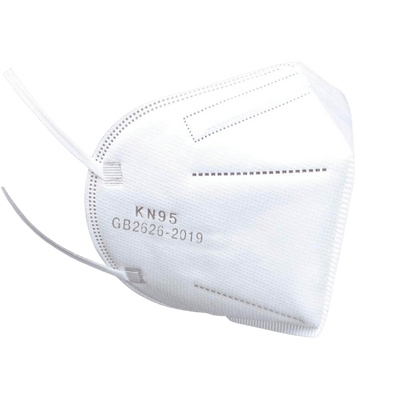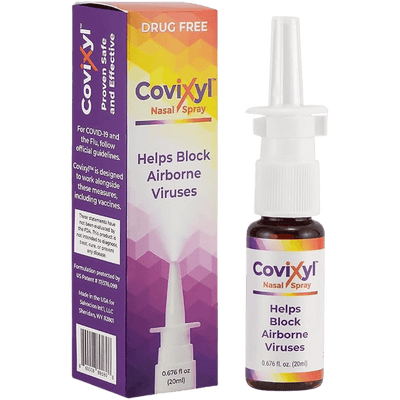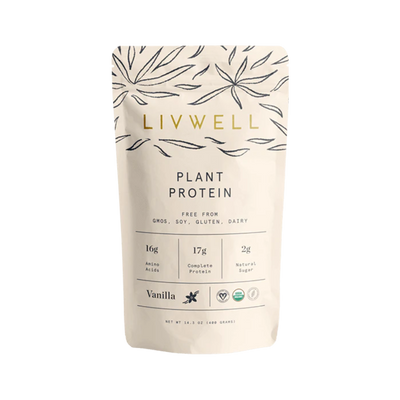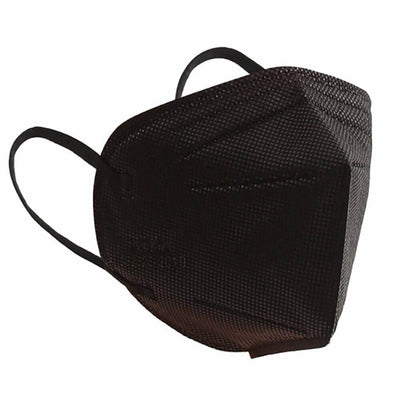KN95 Mask vs Surgical Mask: Which Offers Better Protection?
KN95 Mask vs Surgical Mask: Which Offers Better Protection?

Are you struggling to understand the difference between KN95 masks and surgical masks? You're not alone. For many, the vast array of mask options can be quite overwhelming. Understanding the difference, particularly in terms of 'KN95 mask vs surgical mask' is crucial for you and your loved ones' protection. Here at Hope Health Supply, we are committed to simplifying this information for you and helping you make an informed decision.
KN95 masks and surgical masks differ greatly in their origin, design and their application. The KN95 is a standard respirator mask from China, designed to filter out at least 95% of particles that are 0.3 microns or larger. On the other hand, the surgical face mask, a medical standard tool, is designed to block large particles and liquid splashes, but does not effectively protect against small, airborne particles like a proper respirator mask.
To offer a brief glimpse into the primary distinctions:
- Design and Fit: KN95 masks are designed to create a tight seal around the nose and mouth, which makes them more effective against airborne particles. Surgical masks fit more loosely.
- Filtration Efficiency: Both can filter particles as small as 0.1 microns when properly worn. However, due to the fit, KN95 masks can provide more efficient protection against small, airborne particles.
- Recommended Use: KN95 masks are generally used by the public in situations where there is a risk of exposure to airborne particles, while surgical masks are most commonly used in healthcare settings or by those who are only at risk from large particles or liquid splashes.

In the following sections, we will delve into the distinctions between these two types of masks, how to wear them properly, what type of protection they offer, and which one might be the right fit for you and your family.
Understanding Different Types of Masks
Understanding the different types of masks is crucial in making an informed decision about which mask is best suited for you. The commonly used masks include N95 masks, KN95 masks, surgical masks, and cloth masks. Each of these masks is designed to offer a certain level of protection.
N95 Masks: The US Standard
The N95 mask, also known as an N95 respirator, is held to the US standard and undergoes extensive testing by the National Institute for Occupational Safety and Health (NIOSH), a branch of the CDC. These masks are composed of multiple layers of synthetic material and are designed to create a seal around the mouth and nose. This tight fit makes N95 masks highly effective at protecting against airborne particles, such as those from coughing, sneezing or medical procedures producing aerosol spray. They can filter particles as small as 0.1 microns, though 0.3-micron filtration is the standard.
KN95 Masks: The China Standard
KN95 masks, like the ones we offer at Hope Health Supply, are held to the China standard. Many people often assume that KN95 and N95 masks are the same due to their similarities. Both are composed of several layers of synthetic materials that filter out 95 percent of 0.3 micron or larger particles in the air. However, these masks are certified by different countries, with the N95 mask being the US standard and the KN95 mask being the China standard.
Surgical Masks: The Medical Standard
Surgical masks are commonly used in the medical field to protect the surgical field from liquid splashes and direct aerosols. These masks are made from non-woven fabric and are designed to fit loosely on the face. They are effective at blocking large droplets and particles as small as 0.1 microns when properly worn. However, due to their loose fit, they do not provide effective protection from small, airborne particles.
Cloth Masks: The Basic Protection
Cloth masks, while not as effective as N95 or KN95 masks, still offer a basic level of protection. They are made from various types of cloth and are designed to be washed and reused. Cloth masks primarily reduce the spread of COVID-19 by trapping droplets when the wearer talks, coughs, or sneezes.
In the next section, we will compare the KN95 mask and the surgical mask in terms of filtration efficiency, fit and comfort, breathability, availability, and cost to help you make an informed decision about 'KN95 mask vs surgical mask.'
Comparing KN95 and Surgical Masks
When choosing between a KN95 mask and a surgical mask, consider several factors, including filtration efficiency, fit and comfort, breathability, availability, and cost.
Filtration Efficiency: KN95 vs Surgical Mask
Both KN95 masks and surgical masks are designed to offer a high level of protection. However, KN95 masks, which are respirators, are designed to filter out both large and small particles when the wearer inhales, providing a higher level of protection than surgical masks. KN95 masks are rated to filter out at least 95% of particles down to 3 microns, making them highly effective against airborne contaminants, including the SARS-CoV-2 virus that causes COVID-19. In comparison, surgical masks also provide a high level of protection, but they are not as efficient as KN95 masks in filtering out small particles.
Fit and Comfort: KN95 vs Surgical Mask
The fit of the mask on the face significantly impacts its effectiveness in preventing viral transmission. KN95 masks are designed to create a tight seal around the nose and mouth, providing a higher level of protection. However, note that the mask needs to fit the wearer correctly to provide the promised protection. In comparison, surgical masks do not provide a tight seal around the face, which can allow small particles to enter.
Fit also affects the comfort of the mask. KN95 masks may be more uncomfortable than surgical masks due to their tight fit. However, we at Hope Health Supply strive to provide KN95 masks that are both protective and comfortable to wear for extended periods.
Breathability: KN95 vs Surgical Mask
Breathability is another crucial factor to consider. While KN95 masks offer more protection, they can be less breathable than surgical masks due to their tight fit and denser material. This can make KN95 masks more challenging to wear for long periods, especially for individuals with respiratory conditions. On the other hand, surgical masks, although less protective, are often more breathable, making them a better option for those who need to wear a mask for an extended period.
Availability and Cost: KN95 vs Surgical Mask
Availability and cost can significantly influence mask choice. KN95 masks are generally more expensive than surgical masks, but they also offer higher protection levels. However, due to high demand, KN95 masks can sometimes be difficult to find. On the other hand, surgical masks are typically more affordable and more readily available.
At Hope Health Supply, we strive to maintain a consistent supply of high-quality, affordable KN95 masks. We also offer discounts for bulk purchases, making it easier for you to stock up and ensure your family's protection.
In conclusion, both KN95 and surgical masks offer a significant level of protection against COVID-19 and other airborne contaminants. Your choice between a KN95 mask vs surgical mask should depend on your specific needs, including the level of protection required, comfort, breathability, availability, and cost.
The Importance of Mask Fit
When discussing the comparison of a KN95 mask vs surgical mask, an essential factor to consider is the fit of the mask. A proper fit is crucial for a mask to provide the intended level of protection.
How to Achieve a Proper Mask Fit
A mask should completely cover your nose and mouth and fit snugly against the sides of your face without gaps. The mask should not restrict your breathing and should feel comfortable to wear for extended periods.
For a KN95 mask, the fit should be snug enough to create an airtight seal around the nose and mouth, allowing the filtered air to pass through the mask material. If the mask is loose, unfiltered air can bypass the mask material, reducing its effectiveness.
For a surgical mask, although the fit is generally looser, it should still cover your nose, mouth, and chin completely.
The Impact of Facial Differences on Mask Fit
One aspect to bear in mind is that everyone's face is different. Subtle anatomical variations, such as the amount of subcutaneous fat under the chin, can significantly impact the mask's fit . Therefore, try on different masks to find one that fits you appropriately.
Why Fit Checks are Unreliable
Despite the importance of a good fit, recent research suggests that individuals may not be able to accurately assess the fit of their mask through self-assessments or fit checks . Even healthcare professionals with mask fit education often incorrectly identify whether a respirator fits properly or not.
This finding underscores the importance of proper mask education and training, particularly for those in high-risk situations. It also highlights why we at Hope Health Supply emphasize the importance of understanding how to choose and use a mask correctly.
In the next sections, we will explore the CDC’s recommendations on mask usage, as well as how to properly use and care for your mask.
CDC Recommendations on Mask Usage
When it comes to controlling the spread of COVID-19, mask usage is a crucial component. The U.S. CDC (Centers for Disease Control and Prevention) provides specific recommendations on when and where to wear masks, who should wear which type of mask, and the role of masks in preventing COVID-19.
When and Where to Wear Masks
The CDC recommends wearing masks in public settings, particularly indoors, in areas where COVID-19 cases are high. This is especially true in locations where social distancing may be challenging, such as grocery stores or public transportation. Wearing a mask is a simple and effective way to slow the spread of the virus, protecting both the wearer and those around them.
Who Should Wear Which Mask
The type of mask you should wear generally depends on your level of risk and the circumstances you are in. The CDC suggests wearing the most protective mask that you can consistently wear, is comfortable, and fits you well.
For general public use, cloth masks offer basic protection, while surgical masks provide a higher level of protection. However, when it comes to a KN95 mask vs surgical mask, KN95s provide the next highest level of protection after nonsurgical N95 masks.
High-risk individuals, such as those with older age, weakened immune systems or those who live with or care for someone with these risk factors, are recommended to wear a mask that provides the most protection possible. This could mean opting for a KN95 mask over a surgical mask.
The Role of Masks in COVID-19 Prevention
Masks play a vital role in preventing the spread of COVID-19. They work by trapping respiratory droplets that are released when the wearer talks, coughs, or sneezes. This is particularly important because people can spread the virus to others even if they do not feel sick or have any symptoms.
When combined with other preventive measures such as getting vaccinated, maintaining physical distance, and practicing good hand hygiene, wearing a mask is an effective way to slow the spread of the virus.
In the end, whether it's a KN95 mask vs surgical mask, the most important thing is to wear a mask that fits well and provides the most protection possible for your specific situation. At Hope Health Supply, we strive to provide you with high-quality KN95 masks that meet your needs.
Proper Use and Care of Masks
When discussing 'KN95 mask vs surgical mask', it's also crucial to understand how to use and care for these masks properly. Even the most efficient mask won't provide adequate protection if incorrectly used or maintained. Let's delve into the key aspects of proper mask use and care.
How to Wear a Mask Correctly
Both KN95 and surgical masks should cover the nose, mouth, and chin, with no gaps on the sides. For a KN95 mask, ensure it seals tightly around your face. The CDC suggests a 'knot and tuck' method to make medical masks more form-fitting: knot the ear loops where they attach to the mask, then fold and tuck the loose material under the edges.
For a mask with ear loops, such as most KN95 masks and surgical masks, gently lift and remove the mask by holding both ear loops. If your mask has ties, untie the bottom tie first, then the top, pulling the mask away from you as you loosen the ties.
It's crucial not to touch the front of the mask during removal, as it may be contaminated. Always wash your hands before and after handling your mask.
How to Clean and Store Your Mask
When it comes to cleaning, remember that KN95 masks should NOT be washed. Instead, they can be reused for several days if cared for properly. The CDC recommends storing used N95 masks in a breathable container like a paper bag, clearly labeled to avoid accidental use by someone else.
We at Hope Health Supply provide additional guidance on storing your KN95 mask on our website. Surgical masks are generally disposable and should be replaced after one use or when they become damp or dirty.
When to Replace Your Mask
The lifespan of a mask depends on its type. KN95 masks can be reused by the same wearer for several days if used and cared for properly. On the other hand, surgical masks are meant to be disposable. If you notice any damage or if the mask becomes dirty or damp, it's time for a replacement.
As you weigh 'KN95 mask vs surgical mask', remember that proper use and care of masks are as important as choosing the right type. Be sure to apply these guidelines to maximize the protection your mask provides, and keep yourself and your loved ones safe.
Conclusion

Choosing between a KN95 mask and a surgical mask can be a little confusing, but it's important to make an informed decision based on your specific needs and circumstances. Both masks provide significant protection, but they do have distinct differences that can influence your decision.
KN95 masks, available at Hope Health Supply, offer a higher level of protection as they filter out both large and small particles when the wearer inhales. This makes them an excellent choice in high-risk environments or for individuals with underlying health conditions.
On the other hand, surgical masks also offer a substantial degree of protection and are more breathable, making them suitable for prolonged use. However, due to their loose fit, they might not provide the same level of protection as a well-fitted KN95 mask.
The key is to choose a mask that you can wear consistently and correctly. Comfort and fit are crucial factors to consider. After all, a mask can only provide optimal protection if worn correctly.
Remember that wearing a mask is just one part of a comprehensive strategy to prevent the spread of COVID-19. It should be used in conjunction with other preventive measures such as hand hygiene, physical distancing, and getting vaccinated.
When it comes to 'KN95 mask vs surgical mask,' the decision should ultimately be based on your individual risk level, comfort, and the specific situations in which you'll be wearing the mask. No matter what mask you choose, make sure to wear it consistently and correctly for maximum protection.
In the end, the best mask is the one that fits well, offers a high level of protection, and can be worn consistently. Whether you choose a KN95 or a surgical mask, make sure you have enough supply to change them regularly. If you want to stock up on high-quality masks, we at Hope Health Supply are here to help.











Leave a comment